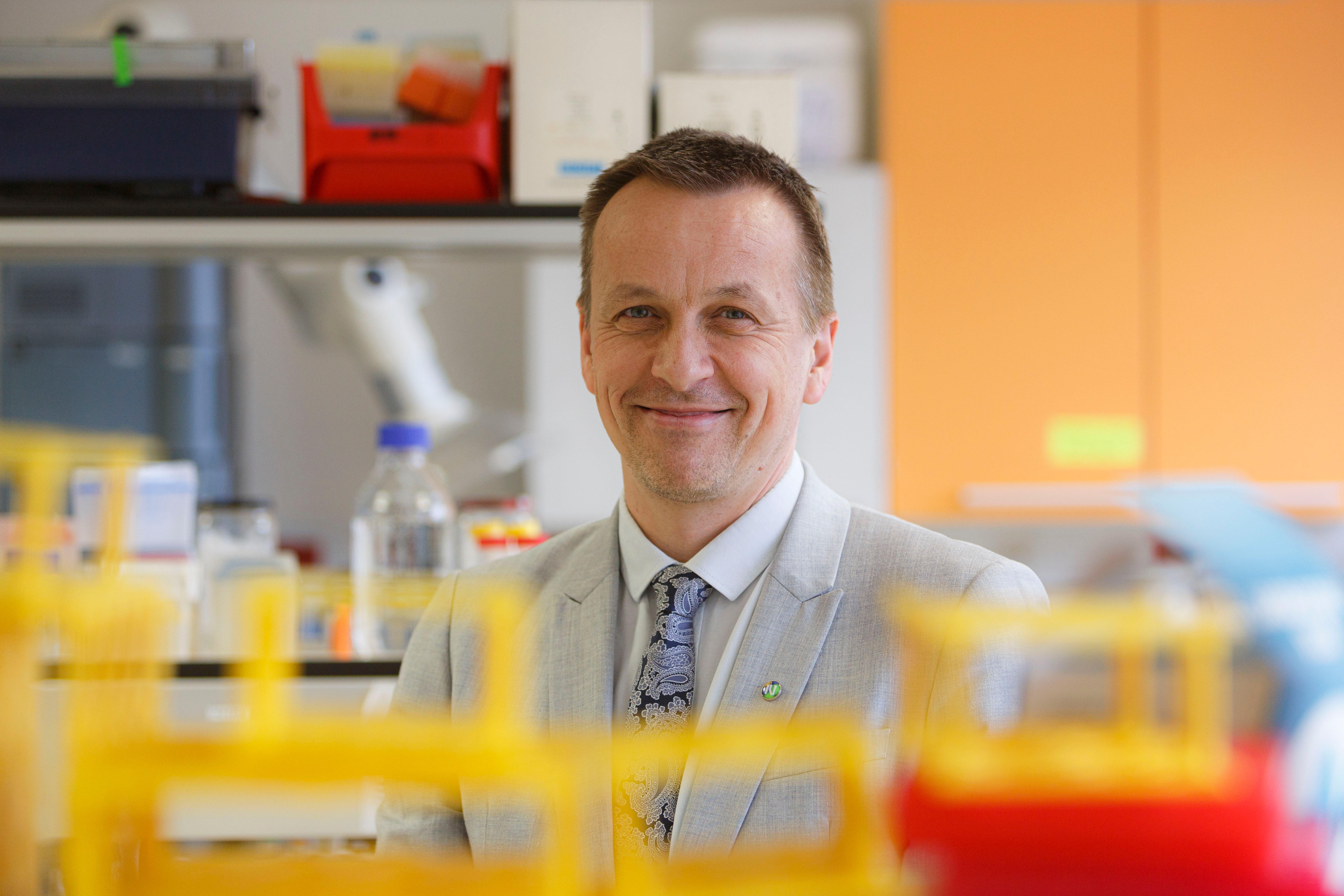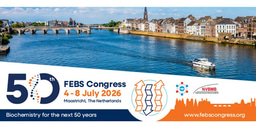Visions: Gregor Anderluh, Director of the National Institute of Chemistry in Ljubljana, Slovenia


Humble beginnings
The National Institute of Chemistry (NIC) was formally established more than 73 years ago by the Slovenian Academy of Sciences and Arts. At its beginning, the institute had only one employee, its founder Prof. Maks Samec.
The early activities of the institute were directed primarily towards understanding the properties of Slovenian coal, in order to help the post-war economy. There were practically no resources for any serious research work, as highlighted by this quote of Prof. Maks Samec from the Internal report 1946: “Working conditions: a) there is no space, b) no personnel, c) no literature, d) no chemicals, e) no laboratory equipment, e) no instruments. Only due to the utmost effort and with maximum support of the government authorities are we succeeding in overcoming the above-mentioned shortages”.
The enthusiasm, dedication and hard work of many researchers over subsequent decades resulted in an enormous growth of the institute. Over the years, NIC has not only contributed important insights into various topics in chemistry and related sciences, but also to the success and development of the Slovenian chemical and pharmaceutical industry, with notable achievements at the end of the last century.
Biotechnology was established as a research strength throughout the 1970s and 1980s, in particular red (medical) biotechnology for the production of antibiotics. Researchers from the institute were also among the first to introduce recombinant protein production in Slovenian research in the 1990s, developing procedures for the production of recombinant biological drugs that were later transferred to actual production. These achievements were realized through a joint research group established at NIC, in collaboration with and founded by the local pharmaceutical company. Such tight collaborations are required for the development of disruptive technologies that give companies a competitive edge. We continue to encourage local and foreign industry to engage in joint ventures, and currently we have established such collaborations with five companies, large and small.
After more than 70 years, NIC has approximately 350 employees active in many exciting areas of research in chemistry and related fields. We are contributing greatly to the generation of new scientific knowledge, education, training and transfer of this knowledge to new generations of scientists.
The secret world of proteins
I was invited to join NIC almost ten years ago. I was attracted by the high standard of research, commitment to excellence in science, and ambition and persistence of its researchers. Proteins have fascinated me throughout my career. They come in different sizes and shapes, exhibit an enormous diversity of functions in cells and have great applications in biotechnology.
Molecular life sciences are therefore an important area of research activities at NIC. Modern approaches for dissecting the structure–function relationships of proteins require a wide repertoire of techniques from different disciplines that we aim to integrate at NIC. We have excellent research programmes in innate immunity, synthetic biology, molecular interactions and nanobiotechnology. Notable successes in recent years include the designing of artificial origami proteins and characterization of protein nanopores.
Excellence as the basis of our operations
In the last five years NIC has undergone some structural changes in our operations, based on recommendations of a review by the International Scientific Advisory Board, conducted for the first time in 2016. We designed a new strategy during 2018, setting ambitious goals for the next five years. At the forefront is ensuring scientific excellence, the foundation of every innovative, high-impact scientific environment.
We aim for increased efforts to establish cutting-edge research infrastructure. We already invested significant resources in new equipment – for example a new cryo-electron microscope for structural biology studies was inaugurated in 2019.
Many of our young researchers have obtained national prizes for their doctoral theses. Mentoring of NIC student teams at iGEM, the most important international student competition in synthetic biology, has been recognized with three Grand prizes. Encouraged by these successes with young researchers, we will further aim to provide a vibrant and stimulating environment for development of young academics. As part of our mission we also widely promote our scientific research work and the understanding of science among the general public. We want the work of scientists to be appreciated and understood within society, as a key driver of economic and general progress.
I am encouraged to see that some of the recently introduced changes have already resulted in significant output of our scientific excellence. For example, researchers from NIC obtained four European Research Council grants in the last two years, and the number of papers with corresponding authorship in high-impact journals, such as the Nature family and Science, has significantly increased.
We also wish to further increase participation in European projects. The project management office recently established at NIC provides help to researchers applying for European grants. As a result, we have considerably increased our funding from the Horizon 2020 Framework Programme. Particularly, we achieved a great success with Marie Skłodowska-Curie Individual Fellowships for post-doctoral researchers. Nine foreign young researchers are joining NIC in 2020, with around half of these supported by Horizon 2020 and the rest by Slovenian funding granted under the EU Seal of Excellence. At present, 15% of NIC employees are foreigners, coming from 23 different countries. In this way, we are also contributing significantly to internationalization of the research landscape of Slovenia and its surrounding region.
There is no future without science
There is no future without science – this belief is the underlying basis of my work as a scientist and a director of NIC. Excellent science contributes to prosperity and welfare of societies in the long run. This is clearly evident in countries that significantly invest in science and development.
At NIC, we strive for scientific excellence and cutting-edge research as key drivers towards our next breakthroughs, as well as the transition to a knowledge-based society, a major priority for Slovenia. In leading NIC, I hold on to these principles, with the vision that our scientific success will lead our institute forward to greater heights, as well as the entire Slovenian scientific community and society in general.
The world of modern science offers many wonderful opportunities. Studies into the molecular basis of biological processes, novel insights into interactions between the organisms, new approaches for genome editing, and synthetic biology are just some of the challenges tackled at the institute, at the forefront of modern life sciences.
While leading to new practical applications of biotechnology, these latest research areas also require us to reflect on ethical and moral issues connected with modern science. I am confident that work by researchers from all fields at NIC will help broaden our thinking about biotechnology, science in general, and its perception within society. We need to actively engage in discussions with regard to current societal challenges and how science can provide new solutions.
Even though NIC has progressed into research topics that were hardly imagined in 1946, our research endeavours are still guided by the principles of our founder Prof. Maks Samec: “The conditions for working at our institution are a serious scientific approach, absolutely reliable precision experimentation and an air of good collegiality.” We are looking forward excitedly to the future!
Gregor Anderluh
Photo credits: Dr Jernej Stare





Join the FEBS Network today
Joining the FEBS Network’s molecular life sciences community enables you to access special content on the site, present your profile, 'follow' contributors, 'comment' on and 'like' content, post your own content, and set up a tailored email digest for updates.